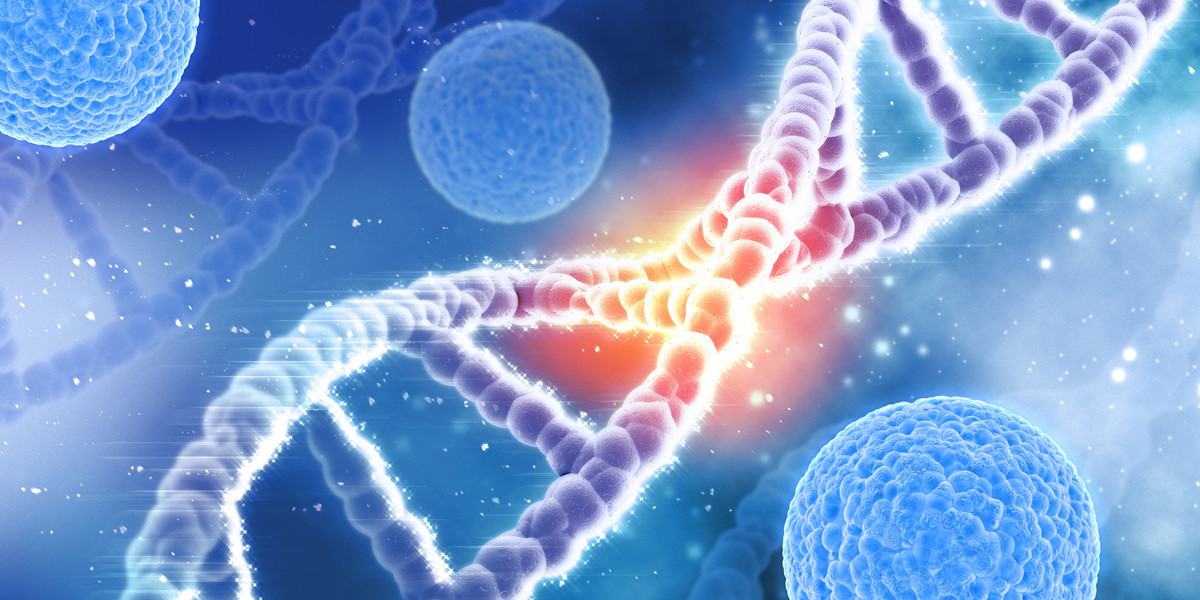Hereditary cancer is a term used to describe a type of cancer that runs in families as a result of genetic mutations. Effective cancer prevention and management depend on clearly understanding how genes impact cancer risk and treatment options. This article discusses the complex interplay between genes, hereditary cancer, and available treatments.
We will discuss typical hereditary cancer syndromes, examine the idea of genetic predisposition, and examine developments in genetic testing and customized treatment approaches. We can empower people and healthcare professionals to make educated decisions and tailor strategies to fight hereditary cancers by revealing the genetic factors contributing to cancer.
Hereditary Cancer Syndromes:
A group of genetic diseases known as hereditary cancer syndromes is defined by an elevated chance of getting certain cancers. Understanding these syndromes is necessary to determine who may be more at risk and put the proper screening and preventative measures in place. Critical hereditary cancer syndromes include the following:
- BRCA1 and BRCA2 Mutations: Breast, ovarian, prostate, and pancreatic cancer risk are all increased by mutations in the BRCA1 and BRCA2 genes. Specific mutations increase an individual's overall chance of developing certain cancers. Thus proactive surveillance and risk-lowering measures may be beneficial.
- Lynch Syndrome: Lynch syndrome, also known as (Hereditary Non-Polyposis Colorectal Cancer - HNPCC), increases the risk of colorectal, endometrial, ovarian, and other gastrointestinal cancers. For those with Lynch syndrome, regular screenings, and risk-reducing treatments could be recommended.
- Familial Adenomatous Polyposis (FAP): FAP significantly increases the risk of colorectal cancer. The proliferation of many polyps in the colon and rectum further distinguishes it. The surgical removal of the colon is often recommended to avert cancer development.
- Li-Fraumeni Syndrome (LFS): LFS has been related to an increased risk of developing breast, brain, bone, and soft tissue cancers. Managing cancer risks in individuals with LFS requires regular testing and early detection approaches.
- Hereditary Diffuse Gastric Cancer (HDGC): Gastric cancer risk becomes higher in those with HDGC, which is caused by mutations in the CDH1 gene. For individuals who have a known CDH1 mutation, prophylactic gastrectomy may be an option.
- MEN (Type 1 and Type 2): Multiple endocrine glands developing cancers is a hallmark of MEN (Multiple Endocrine Neoplasia) syndromes. These can include, among others, cancers of the parathyroid, pancreatic, and adrenal glands. Early detection and treatment depend on regular examinations and surveillance.
Ideas to Examine Genetic Predisposition:
Genetic predisposition suggests genetic changes or mutations may make an individual more prone to developing certain diseases, such as cancer. The primary reasons for genetic predisposition are as follows:
- Genetic Variations and Mutations: Different biological processes are regulated by instructions encoded in our DNA. An individual can inherit or develop genetic variants or mutations. Some of these variations can impact how genes linked to the development of cancer function usually.
- Increased Susceptibility: Genetic predisposition describes a higher risk of developing a disease like cancer due to particular gene variations. These variations can affect the growth of cells, DNA repair processes, and immunological response, making individuals more prone to cancer development.
- Hereditary Cancer Syndromes: Hereditary cancer syndromes show an apparent genetic propensity. In these syndromes, inherited mutations in specific genes significantly enhance the chance of acquiring particular types of cancer. For example, BRCA1 or BRCA2 mutation increases your chance of developing breast, ovarian, or prostate cancer.
- Complex Interplay: A complicated interaction between environmental and genetic factors affects genetic predisposition. In addition to genetic variants, environmental exposures, lifestyle choices, and other non-genetic factors are also very important in cancer development.
- Genetic Testing and Counseling: Specific gene variants linked to a higher risk of developing cancer can be found by genetic testing. Individuals may use it to determine their risk for cancer, understand their genetic predisposition, and decide on screenings, preventative actions, and treatment options with knowledge. Genetic counseling may be helpful for individuals as well as families who wish to understand more about the implications of genetic predisposition.
- Personalized Medicine: Genetic predisposition has made possible customized medicine approaches to cancer prevention and treatment. Doctors can create personalized strategies for those who are at high risk, including targeted therapies, improved surveillance, and risk-reducing activities, by detecting particular genetic abnormalities.
Developments in Genetic Testing:
Developments in genetic testing have entirely reshaped our understanding of genetic predisposition and personalized treatment. The key ideas underlying results in genetic testing are as follows:
- Expanded Gene Panel Testing: Traditional genetic testing focused on particular genes linked to well-known hereditary cancer disorders. Technology developments have enabled extended gene panel testing that tests several genes simultaneously linked to various cancers. This broader strategy offers a more thorough evaluation of an individual's genetic predisposition.
- Next-Generation Sequencing (NGS): DNA can be sequenced quickly and affordably via next-generation sequencing technology. Genetic testing has become much more accurate and efficient because of NGS, which enables the examination of numerous genes at once. It has improved our capacity to find novel gene-disease connections and locate uncommon genetic variations.
- Identification of Variants of Uncertain Significance (VUS): Genetic testing can occasionally identify gene variations with no recognized clinical relevance. "variants of uncertain significance" (VUS) refers to these variations. These variations are further defined to ascertain their connection to disease risk through ongoing research and collaborative initiatives.
- Improved Accessibility and Affordability: Genetic testing is now more widely available and affordable because of technological developments and increased market competition. Today, many commercial genetic testing businesses provide direct-to-consumer tests that individuals may obtain without medical help. For a precise interpretation and direction, it is essential to have conversations with healthcare professionals.
- Multigene Panels and Comprehensive Cancer Risk Assessment: Multigene panel testing provides a thorough evaluation of an individual's cancer risk by examining numerous genes linked to various cancers. This approach makes it possible to develop personalized risk management plans and assists in identifying those who could be more vulnerable to developing specific cancers.
- Integration of Genetic Counseling: Genetic testing involves genetic counseling, which is essential. Genetic counselors offer individuals in-depth information on the implications of genetic testing results, including their risk for cancer, accessible cancer prevention approaches, and treatment alternatives. They assist individuals in making thoughtful decisions and handling the psychological and practical consequences of genetic testing.
Customized Treatment for Hereditary Cancer:
Hereditary cancer treatment must be customized to successfully address these conditions' particular difficulties. The primary suggestions for customized cancer treatments for genetic disorders are as follows:
- Genetic Testing and Risk Assessment: Genetic testing is essential to identify individuals with hereditary cancer syndromes. An individual's likelihood of developing cancer may be determined by examining specific gene mutations, and treatment may be tailored accordingly.
- Personalized Surveillance and Screening: Compared to the general population, those with hereditary cancer syndromes may need more frequent and specific surveillance treatments. Customized monitoring strategies, such as regular screenings or cutting-edge imaging methods, aid in the early detection of cancers when treatment results are often better.
- Risk-Reducing Interventions: A greater risk of developing certain cancers is associated with some hereditary cancer syndromes. Risk-reducing measures like preventative surgery or chemoprevention may be recommended to reduce the chance of developing cancer. For example, individuals with BRCA mutations might choose to have a preventive oophorectomy or mastectomy.
- Targeted Therapies: Treatment options may be affected by gene mutations linked to hereditary cancer syndromes. Certain types of hereditary cancers have shown promise in managing targeted therapies created mainly to limit the functioning of mutant genes or their products. Such treatments may aid in enhancing therapeutic results and lowering side effects.
- Clinical Trials and Research: Hereditary cancer patients can benefit from cutting-edge therapies and advance medical knowledge by participating in clinical trials. Clinical trials usually focus on tailored treatments and cutting-edge methods targeted at specific genetic mutations or abnormalities.
- Psychosocial Support: Hereditary cancer management can be emotionally challenging. Addressing the emotional and psychological effects of hereditary cancer and assisting individuals who are coping with the particular difficulties they encounter need the provision of psychosocial assistance, which includes genetic counseling, support groups, and psychiatric therapy.
Ayurvedic Perspective on Hereditary Cancer:
Hereditary cancer can be treated effectively using the Ayurvedic medical system. It also emphasizes customized treatment plans and holistic healing. The primary ideas for the Ayurvedic approach to treating hereditary cancer are as follows:
- Individualized Assessment: According to Ayurveda, every individual is unique and has a unique constitution (Prakriti), set of imbalances (Vikriti), and set of symptoms. An Ayurvedic practitioner will conduct an in-depth examination to determine the patient's overall well-being and create a unique treatment plan.
- Balancing Doshas: According to Ayurveda, diseases result from the three doshas (Vata, Pitta, and Kapha) being out of balance. Through dietary and lifestyle modifications, herbal treatments, and targeted therapies, the doshas are meant to be in harmony once again.
- Detoxification and Purification: Ayurveda strongly emphasizes detoxification and purification as ways to get rid of toxins and improve health. It is said that procedures like Panchakarma, which incorporate enemas, steam treatments, and massages with herbal oils, aid the body's natural cleansing processes.
- Herbal Remedies: Ayurveda uses a variety of herbal remedies to enhance general health and treat particular medical conditions. Certain herbs and formulations may be prescribed to promote antioxidants, strengthen the immune system, and aid digestion.
- Dietary Modifications: According to Ayurvedic principles, a balanced, nutrient-dense diet tailored to an individual's needs is essential. Specific nutritional advice could be offered to fix imbalances and improve overall well-being. Some examples include consuming fresh, organic meals, adding therapeutic spices, and avoiding processed or unhealthy foods.
- Lifestyle Modifications: The importance of lifestyle factors in preserving health is acknowledged by Ayurveda. It may be advised to incorporate regular exercise, engage in relaxation exercises like yoga and meditation, and have a typical sleeping pattern.
- Mind-Body Connection: The mind-body link and its effects on health are acknowledged by Ayurveda. Strategies including meditation, breathing exercises, and counseling may be recommended to promote mental health and lower stress.
Conclusion:
Hereditary cancer emphasizes the strong effect of our genes on cancer risk and treatment options. Genetic predisposition determines the chance of getting specific types of cancer and directs customized prevention, early diagnosis, and treatment options. Genetic testing has become an effective tool for identifying high-risk individuals and enabling personalized screening methods and risk-reduction treatments.
Genetic research and technological advances have broadened our understanding of hereditary cancer syndromes and enhanced the accuracy and accessibility of genetic testing. Integrating genetic information with evidence-based medicine enables individuals to make educated decisions, seek appropriate medical care, and ultimately improve results in hereditary cancer management.
As a Best Ayurvedic Hospital for Cancer in Kerala, our dedicated healthcare professionals aim to make you healthy with our Ancient and Traditional Ayurvedic Approach, which is purely from nature extract.


